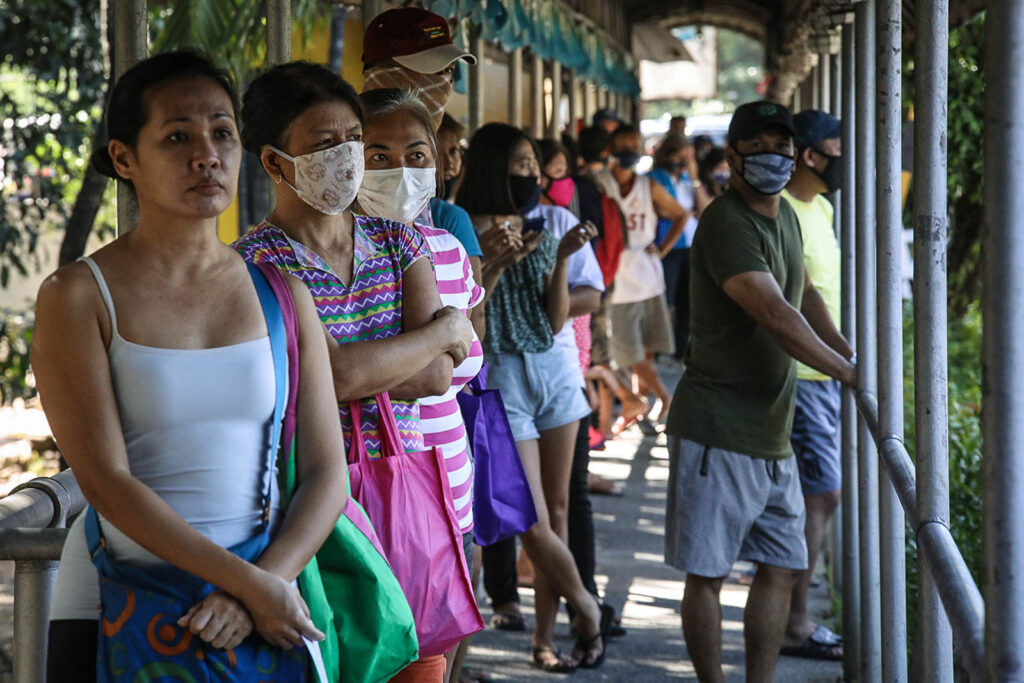Mar 30, 2021, Ralf Rivas
MANILA, Philippines
If the COVID-19 pandemic is prolonged, many households in Southeast Asia may suffer from hunger and increased poverty, says the Asian Development Bank Institute
If they lose their income amid the coronavirus pandemic, around half of Filipino households would have enough resources to cover necessary expenses for only up to two weeks, results of a study by the Asian Development Bank Institute (ADBI) showed.
The household finance crunch in the Philippines is more severe than most countries in Southeast Asia, with the regional average showing that nearly 50% of households can survive with no income under a month.
Only 8.8% of surveyed Filipino households reported that they can survive for over 3 months with no income, while only 14.1% can last for up to 3 months.
Indonesian households reported that 86.6% can only afford less than two weeks.
“This suggests that if the COVID-19 pandemic is prolonged, many households in these countries may suffer from hunger and potentially increased poverty,” the study said.
The ADBI study, released in March, comes as the capital region of Metro Manila and nearby provinces revert to a stricter coronavirus-triggered lockdown, disrupting jobs once more.
The Duterte administration plans to give P1,000 or $20 per person for a one-week lockdown. Health experts have urged the government to extend the lockdown to prevent COVID-19 from spreading further.
In 2020, it took months for cash assistance to be distributed to poor households.
Meanwhile, more than half of households in countries that managed to contain COVID-19, particularly Cambodia, Laos, Malaysia, Myanmar, and Vietnam, did not experience financial difficulties.
Thailand, while successful in containing the virus, had three-quarters of respondents saying that they experienced financial difficulties.
“Although Thailand has not suffered from the pandemic as much as Indonesia and the Philippines, the pandemic may have severely affected tourism, which is a very important sector in that country,” the ADBI said.
Not surprisingly, Indonesia and the Philippines, the countries with the worst COVID-19 infection rates in the region, had the largest shares reporting financial difficulty, at 84% and 85%, respectively.
“Nearly 80% of respondents who suffered from financial difficulty reduced their food consumption. This may have some implications for food security. Other items that people reduced include utilities and non-essential daily expenditures,” the report said.
The Philippines also topped the list with the most households with at least one person losing work amid the pandemic.
Some 70% of Filipino households reported that they had at least one person who lost their job or had to reduce work hours.
The proportion of those in the Philippines who lost their job permanently or temporarily is very high at 22.5% and 28.5%, respectively.
he country’s unemployment rate rose to 8.8% in February, equivalent to some 4.2 million people, the Philippine Statistics Authority said on Tuesday, March 30.
Meanwhile, the underemployment rate stood at 18.2%, equivalent to 7.9 million individuals.
The ADBI survey was conducted over the phone, in 8 countries in Southeast Asia. Around 1,000 calls were made per country. – Rappler.com

